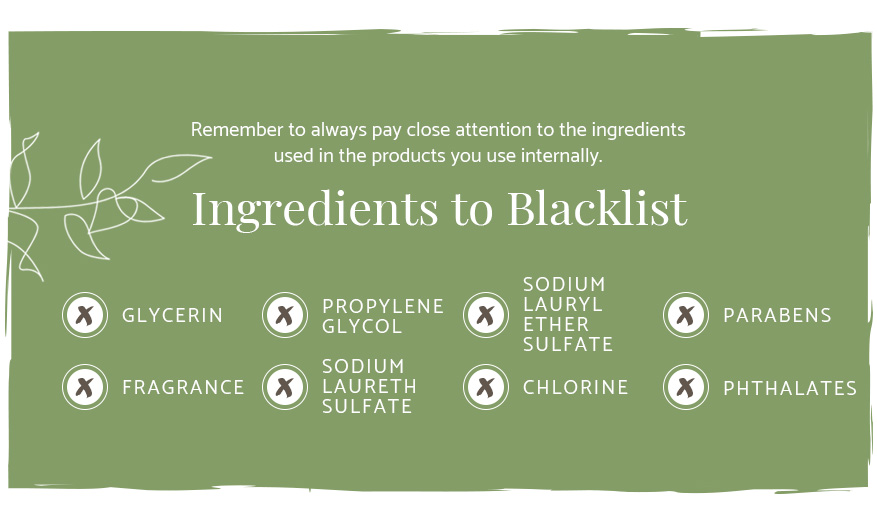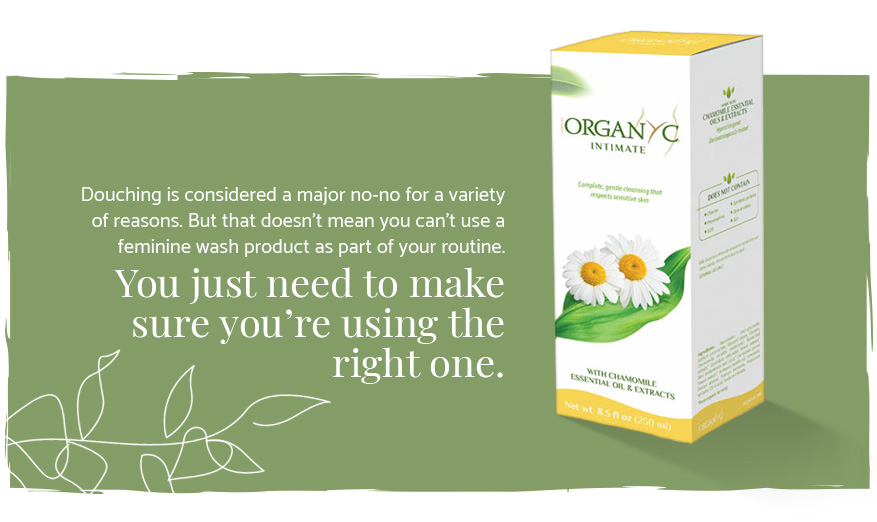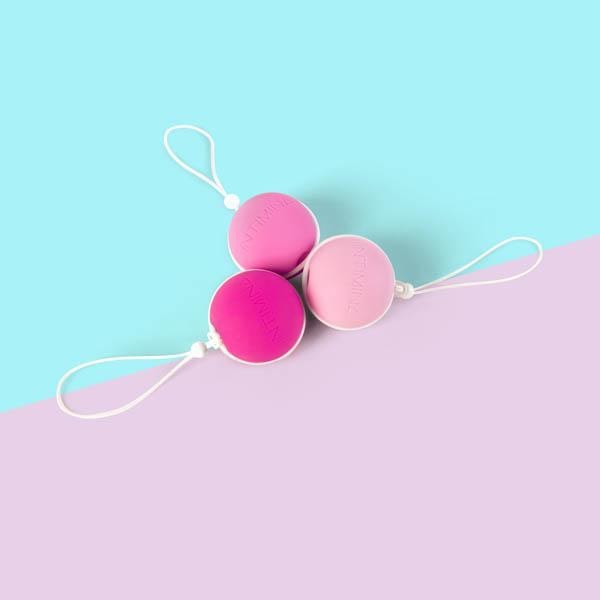
6 Essential Vaginal Hygiene Tips Every Woman Should Know

Few women’s health topics come with as many mixed messages as vaginal hygiene. We know that we need to keep the bad bacteria in check, but we also know that it’s not a good idea to clean the vagina in the same way we do the rest of the body. Indeed, cleanliness down there is a hotly debated topic, and doing so in the wrong way (think: with a douche) can cause serious problems.
Luckily, we’re here to help you untangle the complex, widely misunderstood world of genital hygiene so you feel your absolute best no matter what. With the help of some women’s health experts, we’ve compiled the ultimate list of vaginal hygiene tips for you to keep under your belt (pun intended).
1. Clean Carefully: Don’t Disrupt the Microbiome
You may know that vaginas are home to a complex network of bacteria — both good and bad — which help them stay healthy and in perfect balance. “Think of your vagina as a self-cleaning oven,” says Dr. Karyn Eilber, CEO and Co-Founder of GLISSANT and Associate Professor of Urology and Obstetrics and Gynecology at Cedars-Sinai Medical Center. “The most important vaginal hygiene tip is to avoid things that disrupt the normal vaginal microbiome, such as douching.”

Douching is defined as flushing the inside of the vagina with a cleaning solution and a special tool that sends a stream of water into the vaginal canal. And, though it was popular for many decades, it’s now considered a major no-no for a variety of reasons. In addition to infections, douching can actually lead to more serious health complications, including problems during pregnancy as well as sexually transmitted infections.
But that doesn’t mean you can’t use a feminine wash product as part of your routine. You just need to make sure you’re using the right one and using it mainly in the external area, cleaning gently with clean hands or a washcloth only. Rather than using harsh soaps and surfactants, try less irritating washes made with gentle, natural ingredients that help maintain healthy pH levels without disrupting the vagina’s microbial balance.
Shop All Intimate Care Products
2. Slippery When Wet: Use the Right Lubricant
Personal lubricant is crucial in the bedroom, but the wrong kinds can do more harm than good. “When using lubricants, avoid things that ‘stick’ to the vaginal wall, such as petroleum jelly,” says Dr. Eilber. Anything that’s too sticky can hamper the vagina's ability to clean itself, throwing the bacterial balance out of whack and potentially leading to an infection.
Your best bet? Always use a water-based vaginal moisturizer. “Water-based lubes are most similar to natural lubrication and are compatible with condoms and toys, but make sure it's pH-balanced for the vagina,” says Dr. Eilber. In addition to the kind of lube, you also want to pay close attention to pH and osmolality — that is, the lube’s ability to dissolve — when choosing.
“If the osmolality is too high, it can actually draw moisture out of vaginal cells and cause them to shrink and die,” noted Dr. Eilber. This can cause severe irritation and even tissue damage. The ideal lubricant has a pH of between 3.8 and 4.5, with an osmolality of below 1,500 mOsm/kg (milli-osmoles per kilogram), says Dr. Eilber.
3. No-Fly List: Know What Ingredients to Blacklist
Remember to always pay close attention to the ingredients used in the products you use internally. While everyone is different and your sensitivity level may vary, it’s a good idea to avoid known irritants. Look out for glycerin, propylene glycol, phthalates, fragrance, parabens, sodium laureth sulfate (SLS), sodium lauryl ether sulfate (SLES), chlorine, and artificial preservatives, as these can cause irritation and may increase your risk of developing an infection.

4. Pad Check: Know How to Handle Pads and Liners
Regardless of if you’re menstruating or in the midst of menopause, make sure your pads, tampons and liners are high-quality and made with safe, non-irritating materials. If you have sensitive skin, it’s important that you choose hypoallergenic options. The American College of Obstetricians and Gynecologists recommends changing your pad or liner every four to six hours or more often depending on your flow. Keeping it on for longer can lead to an overgrowth of bacteria and bad odors.
How Often Should You Change Incontinence Pads?
5. Chill Out: Keep Things Cool and Dry
Like any body part, the vagina is affected by its surroundings. It’s important to create an environment that’s comfortable, breathable and temperature-regulated to avoid discomfort and irritation. This means avoiding any garments that could harbor moisture and, in turn, encourage an overgrowth of bad bacteria. “Excessive warmth and moisture can increase risk of yeast infection or bacterial vaginosis,” says Dr. Eilber.
So what fabric is best for underwear? The ideal choice, according to the experts, is cotton. “Wear all cotton or at least cotton-panel underwear to allow the area down there to breathe,” says Dr. Eilber. Cotton will help keep that bad bacteria in check, which means less itchiness, discomfort and odors. Oh, and make sure to always wash your new undies before adding them to the rotation.
6. Safe Play: Be Particular About Toys and Tools
Whether it’s an intimate toy or your favorite set of Kegel balls, be discerning about your intimate tools. One of the best materials for internal vaginal use is 100 percent medical-grade silicone.
This material is not only much more comfortable than others, but it’s also completely body-safe so you won’t risk infection after pleasure or completing your pelvic floor exercises. Silicone is also very easy to clean and won’t harbor as much bacteria, ensuring a safer and cleaner experience.
Browse Our Entire Kegel Ball Collection
Keeping the Peace
Ideally, our vaginas would work like a well-oiled machine, operating in perfect harmony with the rest of our bodies. In reality, they’re among the more finicky body parts, and even brief exposure to an irritant can throw everything out of whack. But following these simple vaginal hygiene tips can help ensure that everything stays in perfect harmony, free of infections, discomfort, and bad odors that make us feel self-conscious and affect our sex lives.
Image Credits
VI Studio/shutterstock.com

